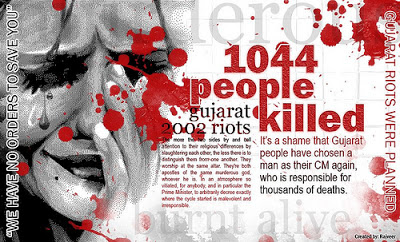Google: Your Latest Ad Also Moves Us South Asians To Tears
By Simran Kaur
06 September, 2015
Countercurrents.org

In November 2013, the Google Search: Reunion ad from Google India, engaged us emotionally, as we shared and re-shared with vigor a testament to friendships and love across faith and borders. Indians and Pakistanis, torn apart by the unnatural partition of 1947, related to the story, teary eyed. Today, just about 2 years later, Google headquarters in California is apparently priming itself to welcome and honor a man who stands against everything Google’s Ad, and our applause, stood for.
Google becoming an advertisement for Indian Prime Minister Modi this September is a shame. Simply by googling “Modi, human rights,” Google’s Mountain View, California campus would quickly have enough to re-consider and rescind their welcome.
For the Gujarat 2002 violence on his watch, as the Chief Minister of the western Indian state, Modi himself explained the level of pain he felt for the hundreds killed:
"Even if I am in the back seat of a car and a puppy (kutte ka bachcha) comes under the wheels, isn't it painful? It is.”
This, as human rights reports included descriptions of the pain inflicted on the streets where Modi envisioned cars driving over puppies:
“Her womb was cut open with a sharp weapon and the unborn baby was taken out and both mother and the child were burnt dead.”
While being vehemently opposed ever since the 2002 Gujarat pogroms, where, at the least, Modi turned a blind eye to horrifying violence, Modi also won a majority election slide in India in 2014. This is why Indian democracy is considered under threat as per leading national and international voices today.
Much less than closing the chapter on communal violence, the 2014 elections have re-entrenched a dangerous politics of pogroms in India. Precisely because it is not unprecedented—quite the contrary, is mirroring the 1984 anti-Sikh violence and subsequent landslide election victories of Rajiv Gandhi—this trend is all the more jarring.
Equally jarring is when a giant like Google, greased and run by so many South Asians, is doling out the red carpet for this pogrom PM.
Not just Sikhs and Muslims and religious, sexual, ethnic, minorities from India, but all Google employees may want to consider what is happening in their name? The same company to celebrate an Indian CEO is now showing a lack of cultural competency, international savvy, and commitment to human rights. It is allowing itself to become an advertisement for a tainted politician who has reinforced hatred & partition within his own borders.
Google employees from disenfranchised backgrounds from India are likely swallowing this shame in silence. The fear of the Modi is palpable and real in India—where many of these employees families undoubtedly still reside. This fear governance is what has led leading U.S. academics—Indian ancestry and others—to write a protest letter against Modi’s promotional visit to California in the first place.
It will take one strong Google employee to begin stating the obvious.
May that be a strong Sikh, who stands again as the proverbial “savaa lakhh”—the one flag bearer against the countless oppressors. If Rajiv Gandhi were visiting the Bay Area California in 1984, we would have hoped the first one to stand would be a Muslim, Buddhist, Christian, or Hindu. Such is the requirement of true solidarity.
But, in true Google spirit, that first protest against Modi’s visit should come from none than Google’s CEO. He now has an opportunity to truly represent what it means to be an Indian at Google, what it means to practice Google’s “Leadership that Empowers.” If he still isn’t sure about what message Google’s advertisement of Modi will send to those victim-survivors who have been silenced and tarnished in Modi’s India, he knows what to do. Google It.
The author is an activist, accountant, mother, and an avid reader who spends her time between Punjab and Canada.
Comments are moderated


